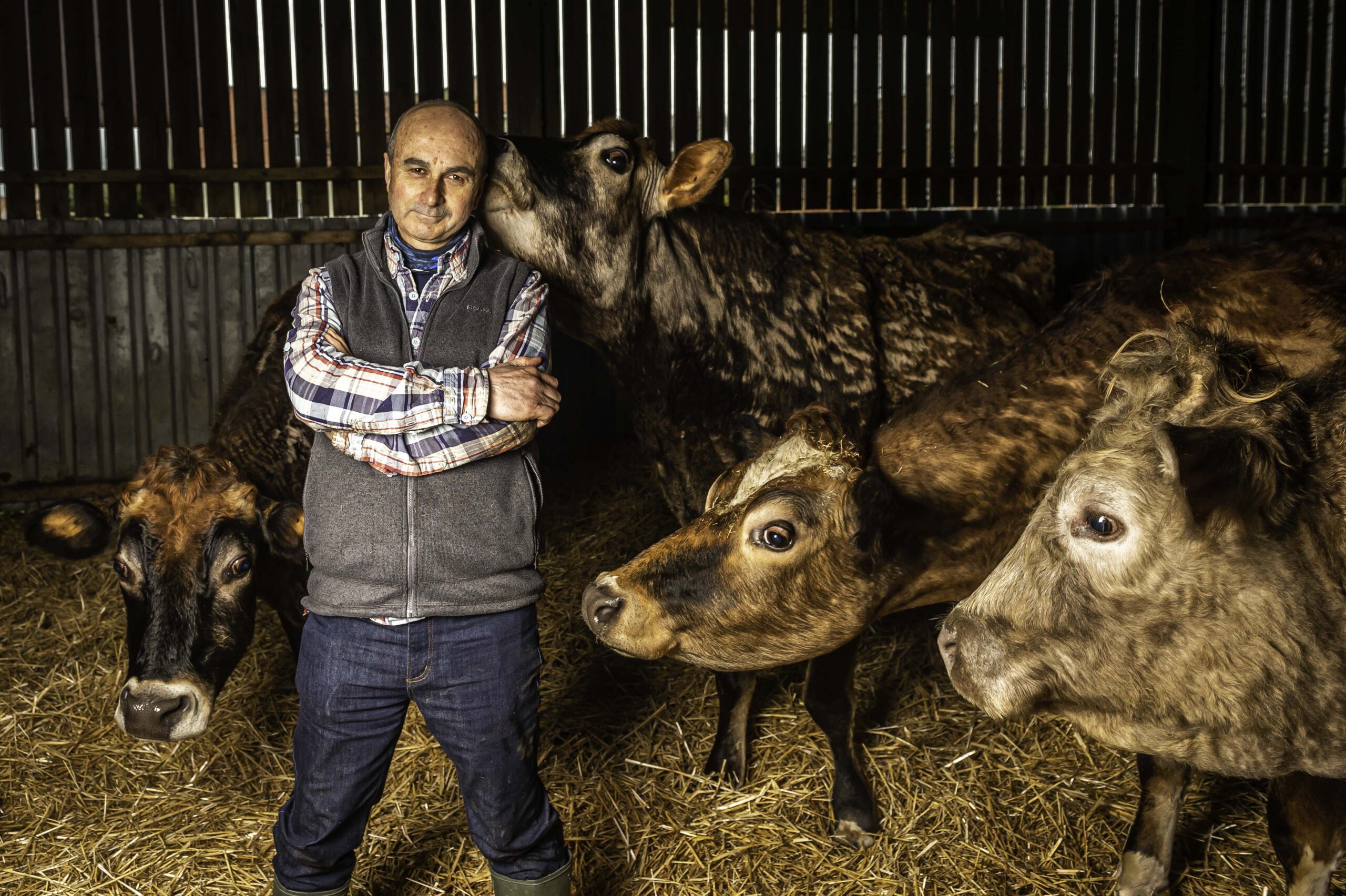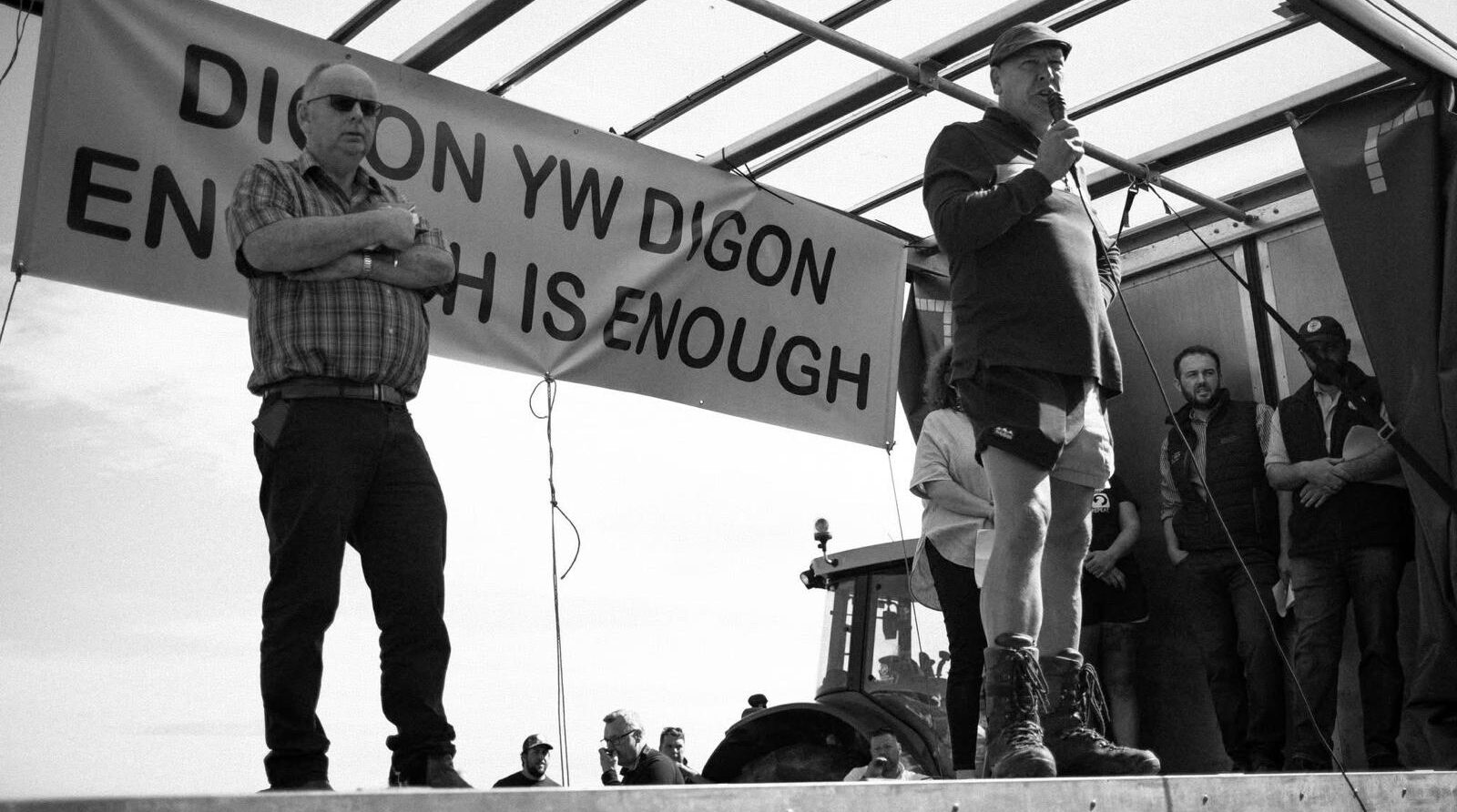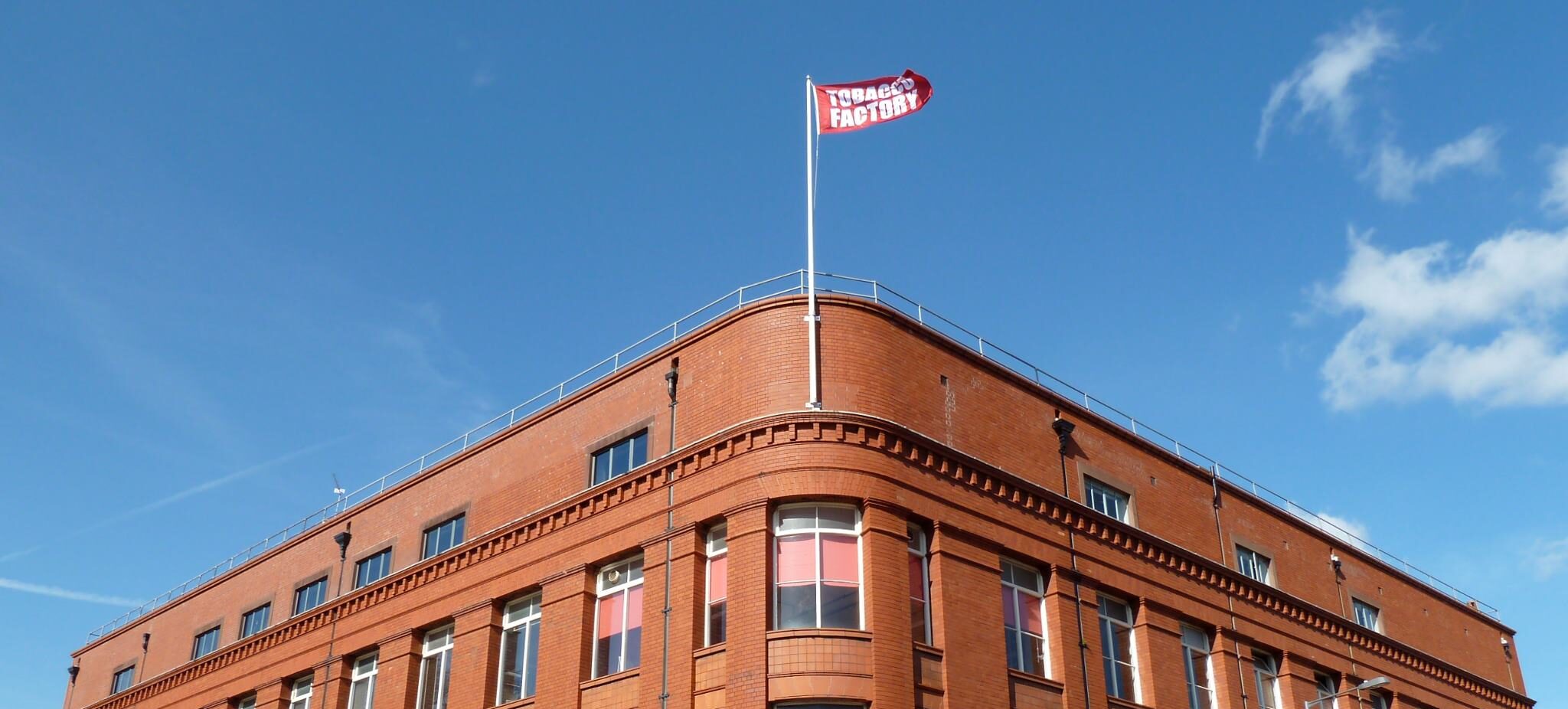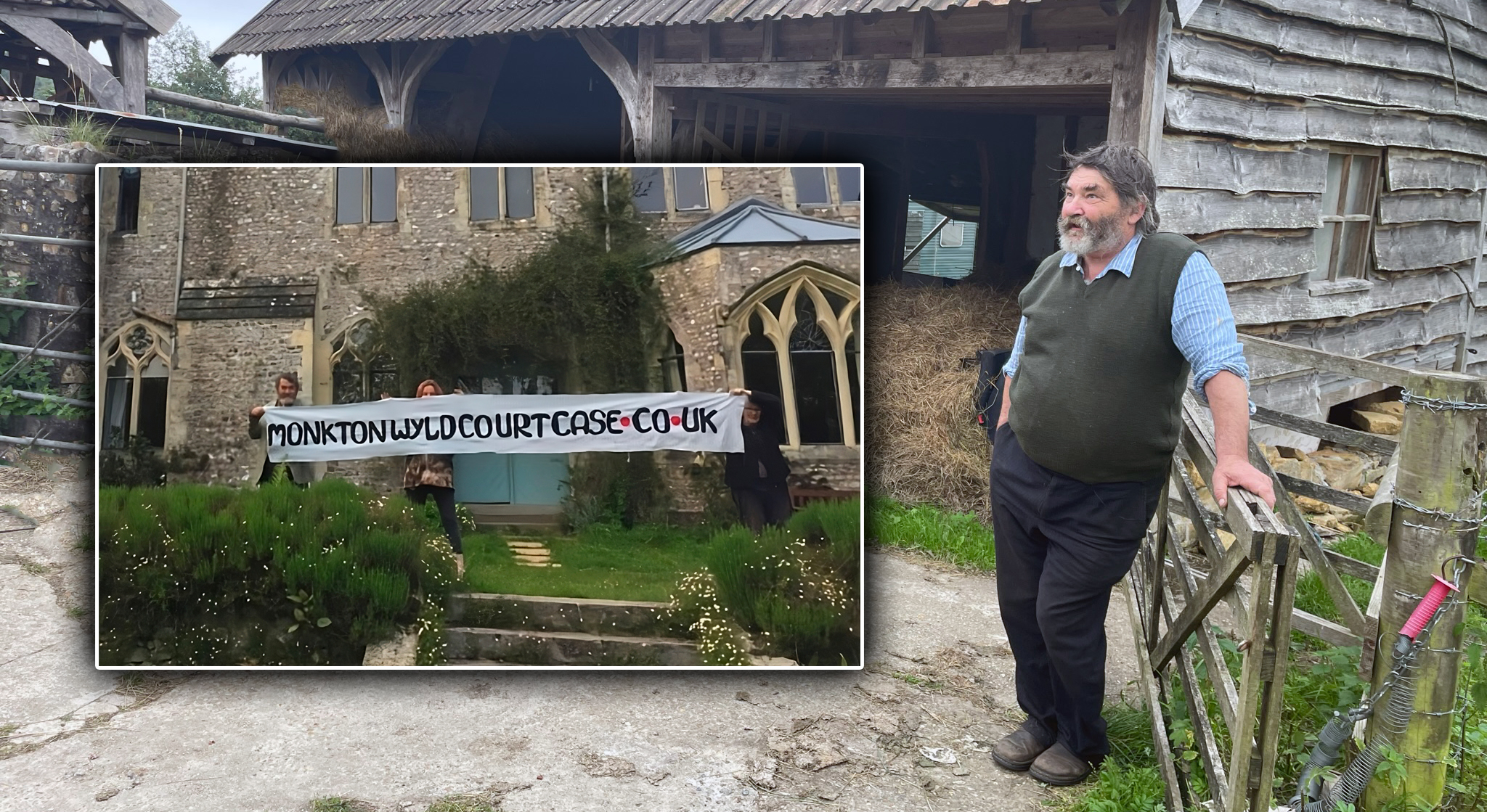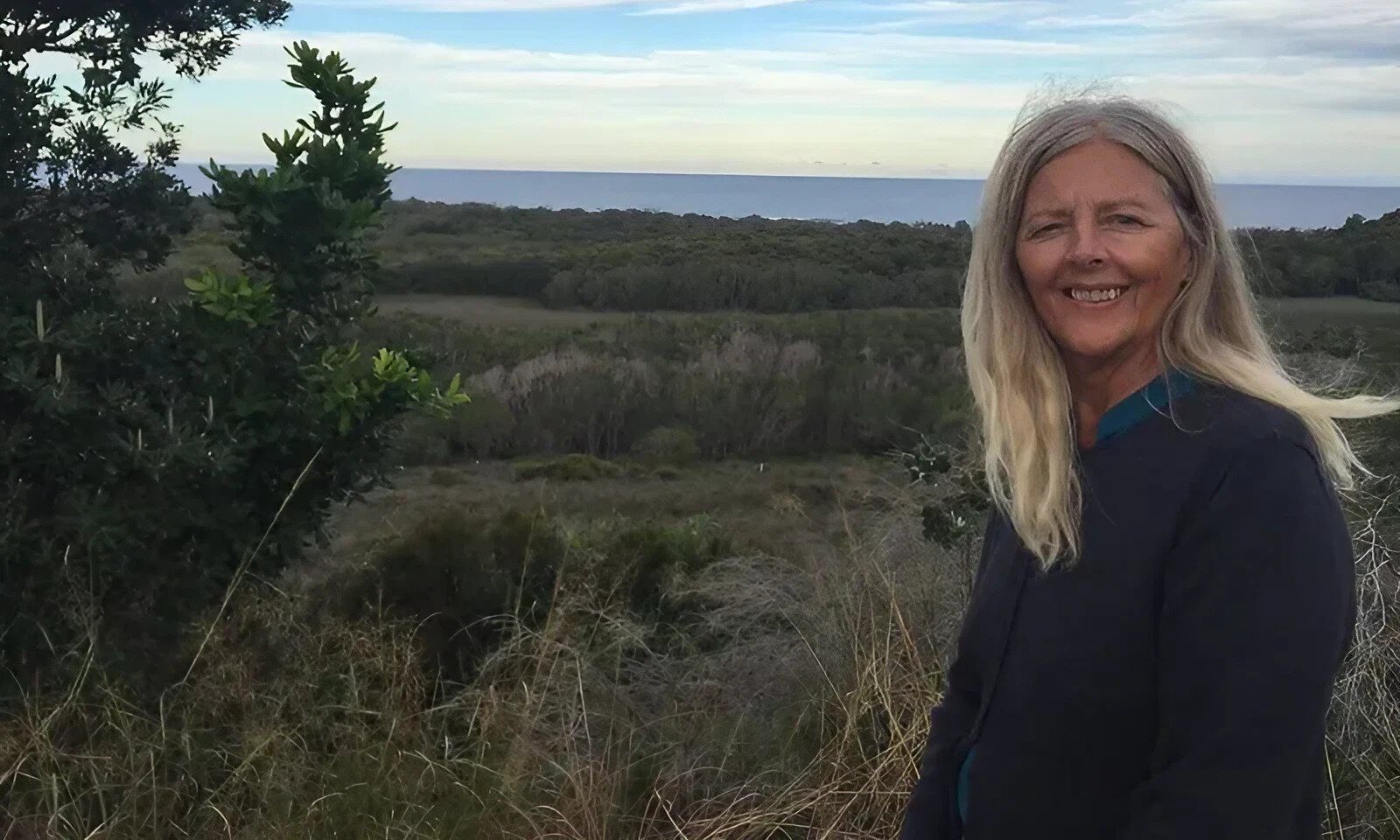Compassion in World Farming Global CEO, Philip Lymbery, filmed this video for our ‘The Great & The Good‘ series. Sows in factory farms suffer terrible cruelty, day after day. We have to End.It. Please sign the global petition to world leaders calling for an end factory farming: https://ciwf.end.it/sign/
Philip Lymbery is an award winning author, ornithologist, photographer and one of the world’s foremost campaigners for better treatment of farm animals worldwide. He played leading roles in achieving a EU-wide ban on veal crates, the narrow steel cages in which calves are trapped and cannot move or turn around, and a UK ban on the inhumane, A4 size space allowance for hens in barren battery cages.
After leaving college he worked as a volunteer on a RSPB reserve in Norfolk, then from 1996 to 2005 as a birdwatching expedition leader, travelling to locations such as Costa Rica, the Seychelles, the United States and the Spanish Pyrenees.
From 1990 to 2000, as Campaigns Officer, then Campaigns Director at Compassion in World Farming, he campaigned to end the live export of farm animals. He then worked as Communications Director at the World Society for the Protection of Animals (now known as World Animal Protection) from 2003 to 2005 when he was appointed CEO of Compassion in World Farming. Working with approximately 100 employees in more than a dozen countries, they’ve fought to bring an end to the suffering of animals such as mother pigs in factory farms crammed into narrow steel cages for 5 weeks at a time, and to reduce the harmful impacts of intensive livestock farming on the environment.
“Essentially factory farming, the intensive rearing of animals in cages, crammed in confinement, is not only the biggest cause of animal cruelty on the planet, it’s also a major driver of declines of wildlife, and the very thing which is taking away our ability to grow food for future generations.
“Cereals that could feed billions of people are being given to animals: soya and grain that could nourish the world’s poorest, are now grown increasingly as animal fodder.”
Under Philip’s leadership, Compassion has engaged with over 1,000 food companies to secure higher animal welfare in their supply chains, and The Grocer magazine describes him as “one of the food industry’s most influential people, improving the lives of two billion farm animals every year.”
His other appointments include Visiting Professor at the University of Winchester, President of Eurogroup for Animals (an umbrella group for over 80 animal welfare organisations in Europe), and founding Board Member of the World Federation for Animals. He was also appointed as a United Nations Food Systems Champion for the 2021 UN Food Systems Summit.
Under Philip’s leadership CIWF has expanded to create a global movement, opening campaign offices in several EU countries, the US and China, campaigning for farm animals to experience a life worth living, the joy of life, and for animal welfare to be defined as more than just the absence of suffering.
His awards include Recipient of the ‘Outstanding Campaign’ award by Brussels based Eurogroup for Animals and the 2015 ‘International Golden Dove’ peace prize in Rome, The Observer Ethical Award for Campaigner of the Year and the BBC Radio 4 Food and Farming award to CIWF for Best Campaigner and Educator.
Philip’s first book, Farmageddon: The True Cost of Cheap Meat, co-written with Isabel Oakeshott, was one of The Times Writers’ Books of the Year and was described as a ‘compelling game changer’ in the Mail on Sunday. This was followed by the ‘Farmageddon in Pictures: The True Cost of Cheap Meat’ which contains shocking images of systemic animal abuse, many photographed by Philip himself in factory farms across the world.
“Our health is under threat: half of all antibiotics used worldwide (rising to 80 per cent in US) are routinely given to industrially farmed animals, contributing to the emergence of deadly antibiotic-resistant superbugs.”
Though there has been a 52% reduction in the use of antibiotics on farm animals in the UK, its use is still 2.5 times higher than in Sweden, almost eight times higher than in Iceland, and more than 10 times higher than in Norway per kilo of animals farmed.
The second book in Philip’s acclaimed trilogy, Dead Zone, was selected as a ‘Must Read’ by the Daily Mail. Philip writes about how ‘cheap’, factory-farmed meat is far from cheap, and is literally costing the earth, polluting the air and water, damaging wildlife, forests, soils and biodiversity. Dead Zone focuses on the harm inflicted on iconic species including elephants, bumblebees and penguins to define the destructive role of factory farming on the world’s living creatures and their habitats.
“Wildlife is being systematically destroyed: bees are now trucked across the States (and even airfreighted from Australia) to pollinate the fruit trees in the vast orchards of California, where a chemical assault has decimated the wild insect population.”
The title of Philip’s third and latest book, Sixty Harvests Left: How To Reach A Nature-Friendly Future, is taken from a stark warning by the UN in 2014, that it takes 1,000 years to create three centimetres of topsoil, and if current rates of degradation continue, all of the world’s topsoil could disappear in 60 years.
“We are losing 30 soccer fields of soil every minute, mostly due to intensive farming,” Volkert Engelsman, from the International Federation of Organic Agriculture Movements (IFOAM), told the forum at the FAO’s headquarters in Rome.
Sixty Harvests Left, based on Philip’s research in the UK, Italy, Brazil, The Gambia and the USA, is a vivid warning of the climate, nature and health catastrophes facing humanity unless there is fundamental change in the way our food is produced. The solutions that Philip proposes are based on regenerative, nature-based farming and the understanding that all life on earth is interconnected and we cannot survive if we break the life-supporting symbiosis between humanity and the planet that sustains us.
“Move away from factory farmed meat and go for pasture fed, regenerative meat sources. Keeping cattle and sheep on pasture is so important because that’s what nature has built them for, grazing on grasses is the very essence of ruminants.
“But it doesn’t end there because what it also does is in harmony with nature so you get biodiversity, birds, bats, and other wildlife flooding back into the system and also quite crucially you rebuild the soil and that is so important because, if we carry on with the intensive farming we’ve been doing for so long, we’ve got just decades left before the soil runs out, before it’s gone. So that is why keeping cattle on pasture is so important, bring soil back, bring the wildlife back, also bring the goodness back into the farming system.”
Philip lives in peaceful surroundings near Petersfield in W Sussex with his wife and stepson, their rescue dog Duke, Monty the cockerel and two rescue hens Sparkle and Trixie.
Share This Article
Related ArticlesView All
Gareth Wyn Jones
Gareth is a Welsh sheep and cattle hill farmer, TV presenter, social media star, and father of three. He has… Read More
The Great & The Good: George Ferguson
George Ferguson’s life and works are fuelled by boundless energy, exuberant creativity, optimism and a high regard for people and… Read More
The Great & The Good: Jerome Flynn
Game of Thrones star Jerome Flynn, and Farms Not Factories founder Tracy Worcester explore the profound bond between farmers, their… Read More
The Great & The Good: Patrick Holden
Post Retweet Patrick and Becky Holden run a 300-acre organic dairy farm in West Wales where the milk from ninety… Read More
Simon Fairlie: Monkton Wyld Court
2m Short Version 11m Full Version GOING TO SEED The story of Simon Fairlie’s life as a rebel guru began… Read More
The Great & The Good: Helena Norberg-Hodge
Helena Norberg-Hodge, linguist, author and filmmaker, is the founder and director of Local Futures, previously known as the International Society… Read More
